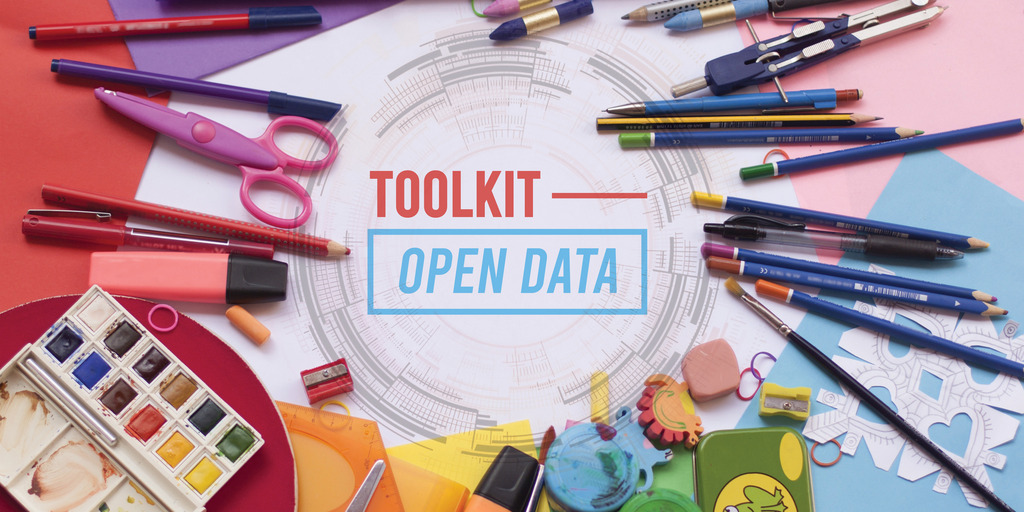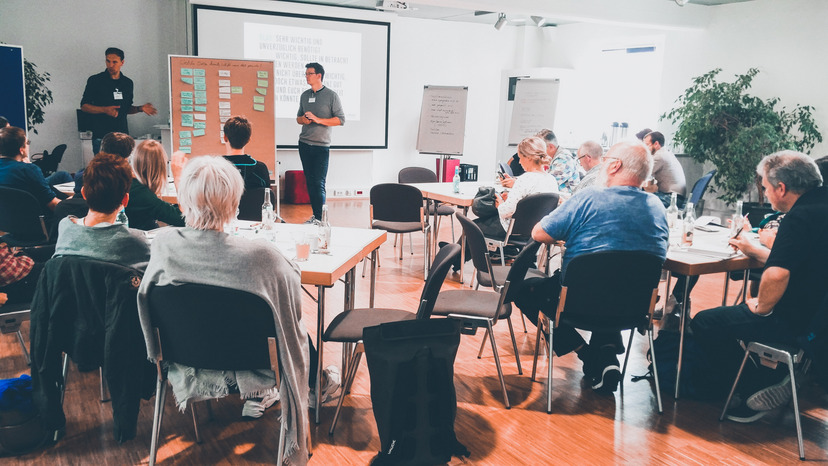Releasing open data can be quite a confusing and tentative subject for staff who work for municipalities. Questions such as what to release, what is legal and above all what is actually useful to people are often stumbling blocks. As the pressure for more government transparency grows more and more government authorities are turning to open data, be that on the instructions of central government, keeping up with fellow municipalities or being greeted with more demand from their own local sectors, at some point all local governments will have to face the fact that it is something they will need to consider - even municipalities who are already releasing data need to ask themselves if their outreach model excludes third sector organisations and is fit for purpose.

pixabay / pexels, Foto bearbeitet – Pexels License, https://www.pexels.com/license/
Open data workshops for communities and nonprofit organizations – A toolbox
Many local government authorities from around the world who are committed to citizen engagement are releasing more and more information and statistical data in the form of open data. However, with the language around digitalisation being so corporate and academic, this is leaving third sector organisations behind. This downloadable workshop brings together government officers with NGO staff to learn about open data from a blank canvas in easy to understand language and looks to formulate a community led open data agenda by learning what data is actually important and useful to Civil Society Organisations in your area.
DOWNLOAD YOUR OPEN DATA TOOLBOX
#ODFA (Open Data for All) – a completely free to use tool
This is why we challenged ourselves to create an extensive but easy to follow piece of work that can support governments to open dialogue with their third sector. We would like to introduce you to our #ODFA (Offene Daten für Alle or Open Data for All in English) toolkit and participative workshop, a completely free to use and access training and development tool that can help you to create your own community-led open data consensus.
No matter where you are in regards to your own agenda, remember, it can always be better. If you have not done so already, it is advisable to create your own data catalog which will help you to track and form the existing data that you already have accessible to you and desmitate what could be released in the future.
A data catalog is an organized inventory of data assets and statistical information you already have internally to your institution, if you have not created one already this will help you to work out what you can make available, organize it in a way that you and your colleagues can understand, or maybe even discover data you wouldn't even realize could be released as open data - it’s best to make this as least complicated as you can.
This workshop will also help you to address this, taking into account:
- Self-screening: What have we already published elsewhere and could easily make it available in an open format?
- Third-party screening: What have other local government authorities already published? Here, for example, look at other open data portals, what are they releasing, what does it look like and would it work for you?
- Stakeholder screening: What does our community want to see? What data is of interest to different target groups and why?
Open data outreach for NGOs and CVOs – it’s time to listen
Municipalities that have years of experience with open data are already using various approaches of community-level engagement. They will take into account the wishes and interests of data users and sometimes, like here in Germany, have direct contact with volunteer developers and tech savvy community activists who can create applications based on open data to promote or look to solve various social issues.
They do this via events such as hackathons, i.e. which are workshop type events that generators new ideas and promotes rapid prototyping, that brings together programmers and creative minds to work together to solve a problem, or volunteer initiatives such as the OK Labs of the Open Knowledge Foundation Germany, which are active in over 25 German cities, offer a possible framework for exchange between the administration and technically minded civil society - you may have something similar in your country or area to help you, but if not, don’t worry, it means your agenda will be organic to your introduction to the concept and the toolkit on this page has everything you need to get started.
But more widely, a very important focus group has been overlooked when it comes to outreach or effort to ensure open data is being used for social action in our neighborhoods and those are third sector and community-led organizations.
Open data can be a powerful tool for nonprofits, for example, to demonstrate the need for funding, to produce reports or articles based on statistical evidence, or to find clues or remedies to future social issues in their own community.
With the #ODFA downloadable toolkit, we hope this will support you to bring together your own staff with local change makers and activists to create your own codesigned strategy.

© Nathan Coyle
Open-Data-Workshop für gemeinnützige Organisationen mit der Stadt Münster im September 2019.
Here in Germany, various local authorities have already downloaded and run the workshop for themselves. Thomas Werner of the Stadt Münster for example, a German city in the state of North Rhine-Westphalia, said “we found the workshop really beneficial to finding out how local NGOs use open data and how we could potentially support them in the future, we found it a useful tool from a Local Government perspective.”
What is inside your #ODFA toolkit download
This is the English version of a tried and tested workshop that has been held within various cities across Germany, because of that we are pleased to offer this tool to international audiences.
The workshop also includes 3 participative activities, the evidence of which you can use as a basis for policy, strategy or future outreach projects.
Once you click the download button a zip folder will download to your computer, there you will have everything you need to run your own #ODFA workshop along with wrap around support and activities post your events.
If you are ready to learn more, you can start your download - but if you would like to learn in detail what will be in your download, please read on.
DOWNLOAD YOUR OPEN DATA TOOLBOX
Let’s look what is in your download:
#ODFA guidebook: here you will find everything you need to run your own #ODFA event, from room set up plan to Q&As.
The workshop:
Workshop presentation: a graphical presentation to engage your audience, full of information, examples, advice and some fun thrown in for good measure - you will need to use your own photo release, registration and workshop feedback forms
Workshop manuscript: all the information you need, including what to say for each slide in the presentation which means anybody can be the facilitator regardless of their skill level. So, perhaps you are a policy maker and you want to open various conversations or you have a junior member of the team who you feel would benefit from this experience - because the manuscript is so comprehensive, including anticipating questions and even guidance for the workshop activities, anybody could run it.
Tools to promote your work:
Eventbrite: you will find example text you can literally copy and paste into your eventbrite, all you will need to do is change the prompted text and upload, there is even a ready made banner image you can use, you can even add your logo.
Graphics to share on social media: five different web graphics you can use to share over your different social media channels to promote your event.
Promotion blogs: two blogs you can edit and upload to your website or chosen blog, the blogs cover why third sector officers should sign up for your workshop and how open data can be a powerful tool for third sector.
Edible poster: simply open this template in Powerpoint or Google Slides, edit the text and save as PDF, now you have a printable poster you can use to share information about your workshop.
Tools to keep engagement going after your workshop:
Setting up a steering group: by setting up an open data steering group, you give your community NGOs the opportunity to participate in your open data activities and help develop them. Such a setting helps to ensure that your open data strategy focuses on the needs of the audience targeted by your open data outreach - this document will talk you through it and help you to set your first agenda to get you going.
Forming your own networking and meet-up events: this document will give you some examples of what has worked here in Germany and how it might be conversant to your country or area, there is a breakdown of how you can approach setting up your first meet-up.
We have made this as open as possible, you will be asked for no details or personal information to access it, simply just download it, use it and share with us how you got on.



